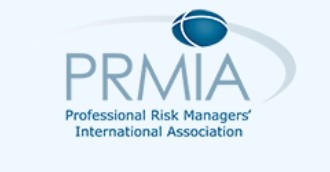University College Dublin
Express an interest
If you are interested & require further information, we will email you a copy of the programme brochure.
Before you continue...
As you are not registered with us, you will need to upload proof you can enrol to this programme.
I know, let’s sign upI have an account, let me sign in firstProfessional Diploma
Advanced Operational Risk Management in Financial Services
Apply now to commence studies in June 2024
At a glance
Developed in conjunction with UCD College of Business the Professional Diploma in Advanced Operational Risk Management in Financial Services showcases extensive academic thinking and rigor as well as unique, real-world insights from our partners Bank of Ireland, Citi and Deloitte.
Who is it for?
The Professional Diploma in Advanced Operational Risk Management in Financial Services has been designed in conjunction with operational risk management professionals, working in financial services and leading academics in operational risk management.
It will equip participants with a deep, practical understanding of operational risk management frameworks and measurement methodologies in financial institutions. This qualification is the benchmark operational risk qualification recognised in the Irish financial services industry sectors of the financial services industry.

PRMIA Partnership - Global Associate PRM (aPRM)
We are delighted to expand our partnership with PRMIA to our Level 9 Risk offerings.
PRMIA is a global brand in risk management education with more than 50,000 members worldwide. Over 2,400 companies employ PRMIA designates, demonstrating that employers around the world realise that PRMIA’s education programmes equip participants with the specialised knowledge and skills necessary to succeed in the dynamic banking industry. PRMIA is active in nearly every major financial centre worldwide with members in over 65 countries.
‘’The Professional Risk Managers' International Association (PRMIA) is proud to announce its continuing partnership with the IOB. PRMIA are already partnered with IOB on their level 8 Professional Certificate in Conduct Risk Culture and Operational Risk Management. Those that earn this Professional Certificate at level 8 also receive the PRMIA Operational Risk Management Certificate, allowing a global PRMIA Certificate to be added to this already outstanding IOB offering. Additionally, in relation to our Associate PRM (aPRM), another PRMIA global Certificate, we are delighted to extend this partnership to IOB's postgraduate offerings, specifically the Professional Diploma in Advanced Banking Risk Management and Professional Diploma in Advanced Operational Risk Management in Financial Services programmes.’’
Justin C McCarthy, CEO, PRMIA
How you will benefit
This specialist programme will provide you with;
A deep and practical understanding of the requirements and responsibilities of operational risk management
Global best practice tools for the identification, assessment, measurement and management of operational risks
Insights into latest academic thinking in areas such AI applications to operational risk management and emerging machine learning models
A thorough understanding of the key practical and relevant operational risks facing financial services professionals in Ireland today including inter alia: financial crime prevention/AML/CFT, KYC, external and internal fraud, information security, IT resilience, cybercrime, outsourcing, business continuity planning, data quality, data protection, impact on capital and other practical areas
Knowledge and skills to capture, report and investigate operational risk events, how to produce meaningful risk MI including Key Risk Indicator (KRI) data and trend analysis, and how to implement operational risk appetite
Tools to identify, measure and mitigate risks and thereby improve business performance
Enhanced business judgement, critical analysis and problem-solving skills.
Continuous Professional Development
If you hold an IOB designation or a designation managed by IOB, CPD hours may be awarded on successful completion of this programme.

This programme has IFS Skillnet funding available for certain companies. You should check if your company has IFS Skillnet approval.
Please note funding available for modules running up until end of 2024 only, a new application will be required for modules running in 2025 if funding is available.
The availability of funding for modules in future trimesters will be confirmed in advance of their commencement.
Tax relief may be available to candidates who are paying fees in a personal capacity. Further information is available from www.revenue.ie.
Funding it subject to availability
View the IFS Skillnet Checklist
Note: Students without IFS Skillnet funding should apply using the Apply now button above.
Fees
01. Risk Governance, Culture, Business and Enterprise Risk Management (10 ECTS) €1,595
02. Operational Risk, Capital Markets and AI (10 ECTS) €1,595
03. Strategic Operational Conduct and Reputational Risk Management (10 ECTS) €1,595
Fees for IFS Skillnet member
01. Risk Governance, Culture, Business and Enterprise Risk Management (10 ECTS) €1195
02. Operational Risk, Capital Markets and AI (10 ECTS) €1195
03. Strategic Operational Conduct and Reputational Risk Management (10 ECTS) €1195
Duration & delivery
Delivery is online.
Each 10 ECTS module comprises of up to 30 delivery hours per trimester (i.e. up to 10 evenings).
Award
Professional Diploma in Advanced Operational Risk Management in Financial Services from UCD.
This is a level 9 qualification on the National Framework of Qualifications and carries 30 ECTS.
PRMIA and their Associate Professional Risk Manager (aPRM) global certificate
Graduates can then apply directly to PRMIA to be awarded the globally recognised PRMIA Associate Professional Risk Manager (aPRM) global certificate. Completing this programme will allow you to stand out among your peers, providing you with a competitive advantage with colleagues, clients, and prospective employers by developing the necessary skills and experience needed to succeed in today’s dynamic work environment.
Assessment
Assessment is a combination of continuous assessment and end of trimester exams.
Next intake
Summer Trimester
Closing date
24 May 2024
Contact
For more information please contact [email protected]
Modules and learning outcomes
Risk Governance, Culture, Business and Enterprise Risk Management
(NFQ level 9, 10 ECTS)
At the end of this module, you will be able to:
Discuss the theory and practice of enterprise risk management in the financial services sector
Describe and explain the theories of corporate governance and their evolution
Develop and propose to senior management an appropriate risk appetite framework for implementation in a financial services provider. Justify your proposal(s)
Evaluate selected international corporate governance models
Critically assess the cultural, leadership and behavioural aspects of corporate governance and the challenges facing boards in embedding a strong risk culture into financial service providers’ risk management, policies and processes
Develop the skills to independently identify, monitor and research resources on advances in ERM and corporate governance best practice.
Operational Risk, Capital Markets and AI
(NFQ level 9, 10 ECTS)
At the end of this module, you will be able to:
Demonstrate what an AI informed alert model is and how one can deploy it to better mitigate fraud and misconduct
Critically evaluate AI algorithms, whether proprietorial or not, to elicit information from data to counter financial regulatory risk
Discuss critically the interaction between the capital markets and instances of misconduct in financial services
Critically appraise the role of organisational culture in determining misconduct in financial services
Critically evaluate ethical consequences of the use of AI in financial services.
Strategic Operational Conduct and Reputational Risk Management
(NFQ level 9, 10 ECTS)
At the end of this module, you will be able to:
Explain the best practice principles of non-financial risk management, covering Operational, Strategic, Reputational and Conduct Risks
Outline to senior management and staff colleagues the bespoke frameworks for the management of key risks within the operational risk family, (to include Business Continuity, IT and Cyber Risk, Fraud, Data Aggregation, Outsourcing, AML) advising them of the rationale for the key differences between each risk framework
Adapt the principles from current best practice in non-financial risk management and develop appropriate strategies for the management of emerging risks (such as those arising from Climate and Fintech)
Apply an operational risk methodology to identify, appraise, and mitigate operational risks in a financial services provider’s business model
Advise senior management on the relationship between operational risks, regulatory capital and risk-based pricing in banking and the wider financial services sector and the rational for, and application of, operational risk capital calculation methodologies
Demonstrate the learning skills to support continuous self-directed personal and professional development.
Key dates
Examination schedule 2023/2024
Next intake
Summer Trimester
Closing date
24 May 2024
MSc Pathway
This programme is included in the Pathway to the MSc in Financial Services
Requirements
Students seeking admission to the MSc Pathway or its constituent programmes must possess:
An Honours degree (second class honours grade 2 award or higher)
or
Admission many also be considered for experienced professionals who do not meet the admission requirements as set out above, where they can demonstrate knowledge through their work i.e. they have more than 5 years’ experience in a management role (to be considered on a case by case basis).
Professional body membership
You must be a current member of IOB, or become a member, to undertake this programme.
The future of learning starts here
Meet IOB learn
Your personalised learning platform and mobile app to help you keep up with industry trends, develop your leadership skills and boost your wellbeing
Join IOB today
